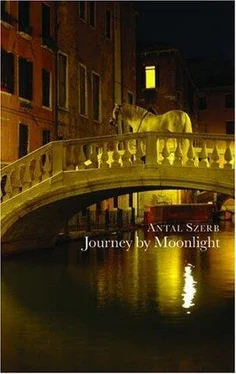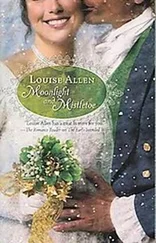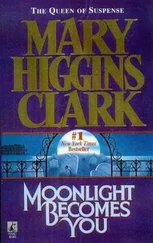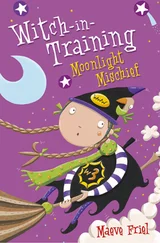“He was a really devout Catholic, as Jewish converts often are. Their centuries of tradition haven’t been eroded the way they have for us. He wasn’t like his pious and impoverished schoolmates who worshipped every day, went to mass, and trained for a career in the church. Their Catholicism was a matter of conformity, his a form of rebellion, a challenge to the whole unbelieving and uncaring world. He took the Catholic line on everything — books, the war, his classmates, the mid-morning buttered roll. He was much more inflexible and dogmatic than even the most severe of our religious teachers. ‘No man, having put his hand to the plough, should look behind him’. That text was his motto. He cut out of his life everything that was not purely Catholic. He guarded his soul’s salvation with a revolver.
“The only vice he retained from his former life was smoking. I cannot recall ever seeing him without a cigarette.
“But he still had his share of life’s temptations. Ervin had adored women. With his comical single-mindedness he’d been the great lover of the class, the way János Szepetneki had been its great liar. The whole form knew about his loves, because he would walk his sweetheart for the whole afternoon on Gellért Hill, and write verses to her. The boys respected Ervin’s attachments because they felt the intensity and the poetic quality. But when he became a Catholic he naturally renounced love. At that time the lads were beginning to visit brothels. Ervin turned away from them in horror. They, I am quite sure, went to those women for a lark, or out of bravado. Ervin was the only one who really knew the meaning of physical desire.
“Then he met Éva. Of course Éva set her cap at him. Because Ervin was beautiful, with his ivory face, his high forehead, his blazing eyes. And he radiated differentness, stubbornness, rebellion. And with it he was gentle and refined. I only came to appreciate him after he and János turned up at the Ulpius house.
“That first afternoon was horrible. Tamás was aloof and aristocratic, contributing only the occasional totally irrelevant remark, pour épater les bourgeois . But Ervin and János were not épatés because they weren’t bourgeois. János talked the entire afternoon about his whale-hunting experiences and the plans of some big company to harvest coconuts. Ervin listened, smoked, and gazed at Éva. Éva was quite unlike her usual self. She simpered, she put on airs, she was womanish. I was utterly miserable. I felt like a dog discovering that two other dogs have come to share his privileged place under the family table. I growled, but really I wanted to howl with misery.
“I began to visit less often. I arranged to call when Ervin and János weren’t there. Besides, we were approaching our school-leaving exams. I had to take them seriously. What’s more, I made a huge effort to drill the essential information into Tamás. Somehow we got by, Tamás on the strength of my cramming him — mostly he didn’t even want to get out of bed. And after that there began a whole new phase of life at the Ulpius house.
“Now everything changed for the better. Tamás and Éva emerged as the stronger personalities. They completely assimilated Ervin and János into their way of life. Ervin relaxed his morbid severity. He adopted a terribly kind, if somewhat affected, manner, speaking always as if in quotation marks to dissociate himself in some way from what he was saying or doing. János was more quiet and sentimental.
“In time we got back to the play-acting, but the plays were now much more crafted, enriched by János’s escapades and Ervin’s poetical fantasy. János naturally proved a great actor. His declamation and sobbing were always over the top (because what he really wanted to play was unrequited passion). We had to stop in mid-scene for him to calm down. Ervin’s favourite role was a wild animal. He did a wonderful bison, slain by Ursus (me), and an extremely accomplished unicorn. With his single mighty horn he shredded every obstacle — curtains, sheets, and the rest of us put together.
“During that period our horizons gradually opened out. We began to go for long walks among the Buda hills. We even went bathing. And then we took up drinking. The idea came from János. For years he’d told us stories about his exploits in bars. Apart from him, the best drinker among us was Éva — it was so hard to tell whether she was drunk or just her normal self. Ervin took to drinking with the same passion as with his smoking. I don’t like to confirm a prejudice, but you know how strange it is when a Jew hits the bottle. Ervin’s drinking was every bit as odd as his Catholicism. A sort of embittered plunging headlong into it, as if he wasn’t simply getting drunk on Hungarian wine but on some vicious substance like hashish or cocaine. And with it, it was always as if he was saying goodbye, as if he was about to drink for the very last time, and generally doing everything as if for the last time in this world. I soon got used to the wine. I came to depend on the feeling of dissolution and the shedding of inhibition it produced in me. But at home the next day I would feel horribly ashamed of my hangovers, and always swore I’d never drink again. And then when I did drink again, the knowledge of my own weakness grew, as did the sense of death, which was my overwhelming feeling during these years of the second phase at the Ulpius house. I felt I was ‘rushing headlong towards ruin’, especially at those times when I was drinking. I felt I was irretrievably falling outside the regular life of respectable people, and everything my father expected of me. This feeling, despite the horrible agonies of remorse, I really enjoyed. By this stage I was virtually in hiding from my father.
“Tamás drank very little, and grew steadily more taciturn.
“Then Ervin’s religiosity began to affect us. We had by now started to look at the world, at the reality we’d always shied away from, and it terrified us. We believed that man was degraded by his material needs, and we listened reverently to Ervin who told us we must never follow that path. We too began to pass judgement on the whole modern world with the same severity and dogmatism as Ervin himself, and for a while he became the dominant influence in the group. We deferred to him in everything. János and I strove to outdo each other in pious deeds. Every day we searched out new poor unfortunates in need of assistance, and even newer immortally great Catholic authors requiring to be rescued by us from undeserved obscurity. St Thomas and Jacques Maritain, Chesterton and St Anselm of Canterbury buzzed in our conversation like flies. We went to mass, and János of course had visions. Once St Dominic appeared at the window before dawn, with the gesture of the raised finger, and pronounced: ‘We watch over you individually and completely.’ I guess János and I in this pose must have been irresistibly comic. Tamás and Éva took little part in this Catholicism of ours.
“This period lasted for perhaps a year. Then things began to disintegrate. I couldn’t say exactly what began the process, but somehow common reality began to flow back. And with it, it brought decay. The Ulpius grandfather died. He suffered for weeks. He struggled for air, his throat rattled. Éva nursed him with surprising patience, staying up whole nights at his bedside. I remarked to her later how good it was of her. She smiled absent-mindedly and said how interesting it was to watch someone die.
“At that point their father decided that things really couldn’t carry on as they were. Something would have to be done about his children. He wanted to marry Éva off as a matter of urgency. He bundled her off to a rich old aunt in the country, who took a large house where she could go to county balls and Lord knows what else. Éva of course returned after a week, with some marvellous stories, and submitted phlegmatically to her father’s chastisement. Tamás did not share his sister’s easy nature. His father put him in an office. It’s horrible to think … even now it brings tears to my eyes when I think how he suffered in that office. He worked in the city hall, with conventional petty-bourgeois types who regarded him as mentally unsound. They gave him the most stupid, most dully routine work possible, because they reckoned he wouldn’t be able to cope with anything requiring a little thought or initiative. And perhaps they were right. The worst of the many humiliations he received at their hands amounted to this: not that they insulted him, but that they pitied and cosseted him. Tamás never complained to us, just occasionally to Éva. That’s how I know. He just went pale and became very withdrawn whenever the office was mentioned.
Читать дальше












